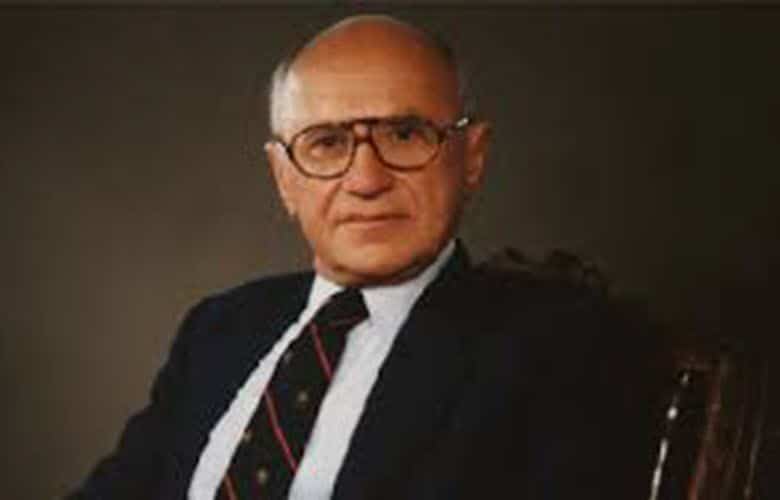Milton Friedman (31 July 1912 – 16 November 2006) was an American economist and statistician. In 1976, Milton Friedman was awarded the Nobel Memorial Prize in Economic Sciences.
Life and Career
Milton Friedman was born on 31 July 1912, in Brooklyn, New York, United States.
Friedman attended Rutgers University, where he earned his bachelor’s degree in 1932. He then pursued graduate studies at the University of Chicago, where he obtained a master’s degree in 1933 and a Ph.D. in 1946. His time at the University of Chicago would significantly shape his economic theories and perspectives.
Milton Friedman had an illustrious career as an economist and educator. He served as a professor at the University of Chicago for over three decades, from 1946 to 1977. During his tenure, he developed and promoted various economic ideas, including his most well-known contributions to monetarism and the quantity theory of money.
Friedman was also an advisor to several U.S. Presidents, including President Ronald Reagan. His advocacy of free-market principles and limited government intervention greatly influenced economic policies during that era.
Milton Friedman passed away on 16 November 2006, in San Francisco, California, United States
Award and Legacy
In 1976, Milton Friedman was awarded the Nobel Memorial Prize in Economic Sciences for his achievements in the field of consumption analysis, monetary history, and theory, and for his demonstration of the complexity of stabilization policy.
Milton Friedman’s legacy lies in his advocacy for free-market capitalism and individual liberty. He was a proponent of limited government interference in the economy and believed that free-market forces should largely govern economic activities. His ideas and theories, collectively known as “Friedman economics,” had a profound impact on policymakers, economists, and the general public, shaping economic policies in various countries.
Friedman’s writings and public lectures have continued to inspire generations of economists and policymakers worldwide, ensuring that his influence endures even after his passing.

